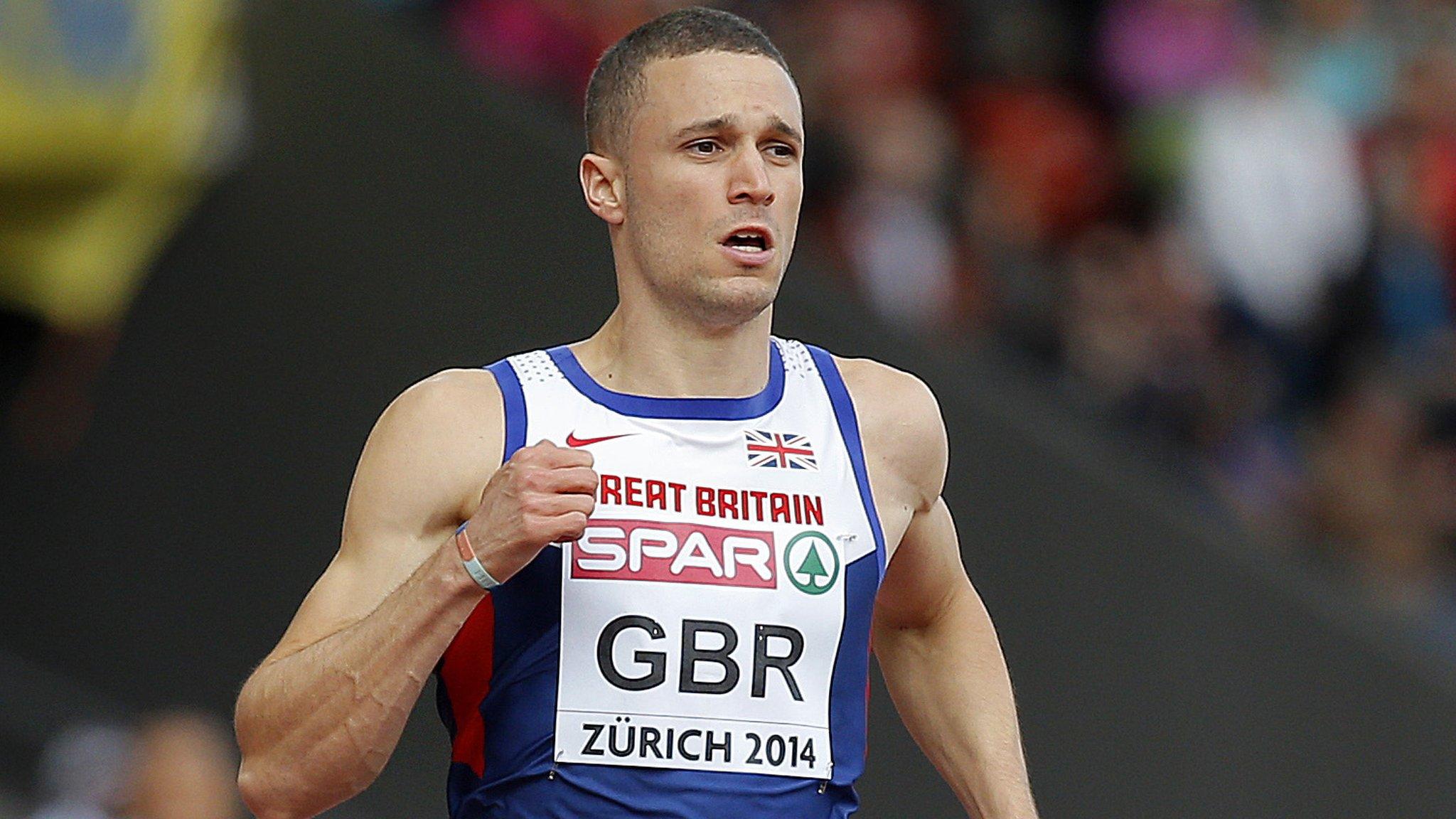Get Inspired: 'Having a colostomy bag doesn't have to limit your life'
- Published
Sarah Russell runs ultra-marathons and has a colostomy bag
I'm a typical busy mum of two teenage boys, I work as a sports journalist and running coach, I run ultra-marathons… and I also have a colostomy bag.
It's one of those things you never think will happen to you, especially when you're a competitive athlete. Yet, when faced with adversity, you allow it to take you down - or you adapt, survive and become stronger.
I'll be honest, I'd never really heard about stomas or colostomy bags., external
I didn't really understand what it meant or how they worked. I didn't know anyone who had one and never in a million years did I imagine I'd end up having one of my very own.
But life has a funny habit of throwing a curveball when we least expect it.
Back in 2010 - aged 37 - I was training for an Ironman triathlon (a 2.4-mile swim, 112-mile bike ride and a marathon - 26.2-mile - run), in peak fitness (so I thought) and suddenly, from out of the blue, I suffered a life-threatening perforated bowel, peritonitis, external and emergency surgery.
Sarah Russell |
|---|
"I go mountain biking with my kids in the Alps, I hike, I run, I go coasteering, I wear normal clothes... and I sometimes forget I've got a bag at all." |
Three years of misery followed, with various complications and a total of five major abdominal operations. Unable to eat solid food as my bowel was unable to function properly, I survived on liquid meal replacements and boiled sweets for months.
I'd hit rock bottom and at one stage wondered if I'd ever be able to eat normally again, let alone go running.
But a successful operation in 2012 got me back on my feet with a working ileostomy,, external and I was able to make a slow and gradual return to eating - it still took two years before I could eat a banana - and, most importantly, get back to training.
Running, training and exercise has always been my life. It's my job and my passion. And I wasn't about to let a little thing like a colostomy bag get in the way.
No-one can see it, it doesn't smell and when it's working well, you can eat anything you like. The scientist in me actually finds it really interesting. It's an amazing medical development, and thanks to modern advancements in bags and products, it isn't the horror story it once was.
It's not always a bed of roses though, and there are hidden challenges to cope with.
Sometimes the bag leaks - which is never a good thing - and always at really inopportune moments.
I've had a leak whilst cycling to a conference and another literally 10 minutes before the start of a race. But when faced with a belly covered in 'output', all you can do is sort it out and dig deep into your sense of humour - and always carry a spare set of clothes.
The biggest - and possibly most surprising - issue for anyone with an ileostomy is actually dehydration. A bout of flu earlier this year had me in hospital on an IV drip and it's the reason I choose not to drink alcohol - the tiniest sip gives me a raging hangover.
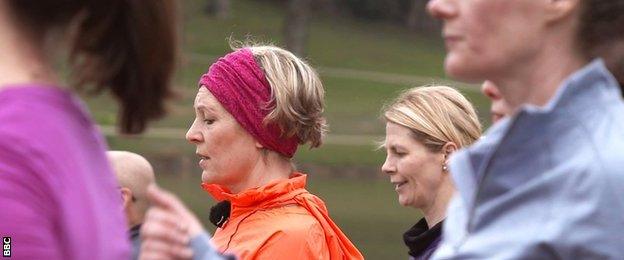
More than 350 people are members of Sarah's running group, which she coaches twice a week in Kent
But despite all of that there are a million other medical conditions that could be so much worse, and for the most part - so long as I'm not dehydrated - there is nothing I can't do because of it.
I go downhill mountain biking with my kids in the Alps. I hike mountains, I run, I go coasteering,, external I wear normal clothes and I sometimes actually forget I've got a bag at all.
Seven weeks after one of my surgeries I climbed The Old Man of Coniston, external in the Lake District with my family; eight weeks after another I ran a 50-minute 10km race.
Nine months after my final surgery I took part in the Jungfrau Mountain Marathon, external in Switzerland and, in 2014, I became the first person with an ileostomy bag to run the 'Himalayan 100', external - a 100-mile stage race over five days at altitude in the Indian Himalaya.
When I came home from that race I felt invincible - if I can do that and survive, then I can do anything.
I'm not saying this to boast. I simply want to share my story and show that having a bag doesn't have to limit your life in any way, if you don't let it.
Ignorance 'drives the stigma of colostomy bags' |
|---|
"The portrayal of colostomy bags by the media and also the medical community leaves a lot to be desired. Perhaps ignorance or lack of awareness has helped to drive the stigma. |
"I've heard people say that they'd rather die than have a bag; that it's the worst thing that could happen, and I've seen the pity in the eyes of people when I tell them I have one. But the reality is that for many of us it's a life-saving procedure. And for many others - especially those with Crohns disease or colitis - it actually improves quality of life. And honestly... once you get used to it, it's really not a big deal at all." |
I'm not alone in my adventures. There are many other athletes with stomas doing amazing things, including Rob Hill, external - a British climber who scaled Mount Everest - and Spyros Barres,, external an American marathon runner.
I also belong to a Facebook group called "Ostomy Lifestyle Athletes', where the talk is always about our sporting achievements, races or advice on running - rarely do we dwell on our medical issues or complain.
It's supportive and encouraging and helps others in the same boat realise that nothing is impossible. Having a bag doesn't hold us back in any way. It's incredibly inspiring.
Has it changed me? In some ways, I've just picked up where I left off before - although I never did get to do that Ironman and I run a lot slower now. But in other ways, it's changed me for the better; I have more perspective and I'm grateful for my experience, and what it's taught me.
The simple pleasures in life - such as going for a run, or hiking a mountain with my family - are treasured, not taken for granted.
Before, I might have grumbled about a training run. Now I appreciate every step I take.
For me, my colostomy bag is simply a challenge to overcome - much like a marathon or any other race. It's not a barrier, nor is it a disability - and I'm not about to let it stop me doing anything. After all, it's just a bag.
- Published3 April 2019
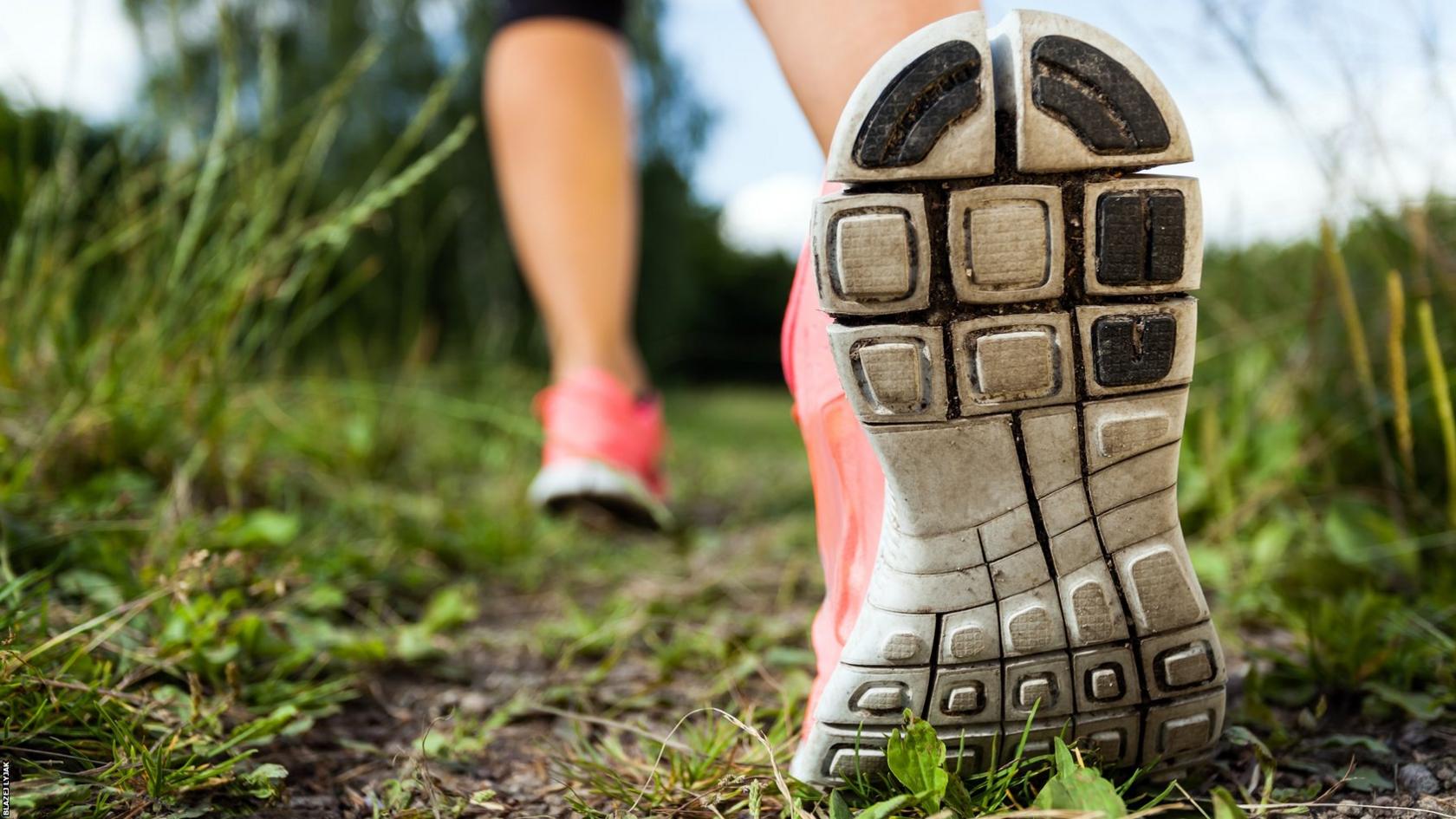
- Published10 April 2014
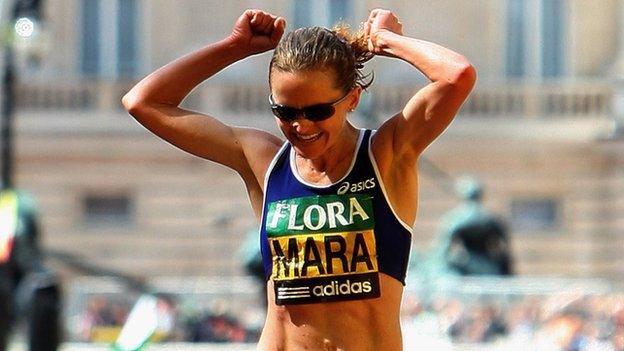
- Published8 September 2017
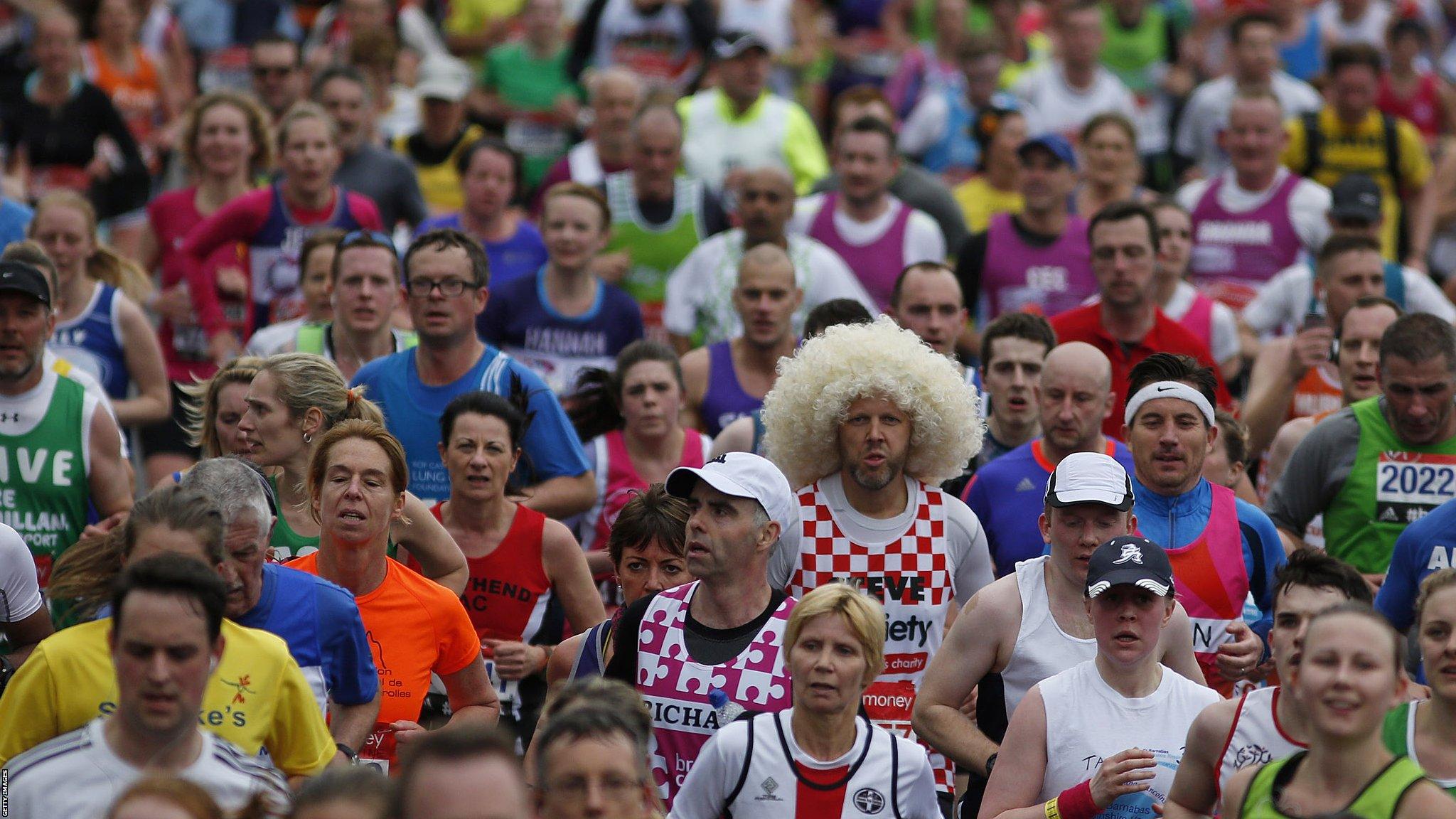
- Published15 May 2015
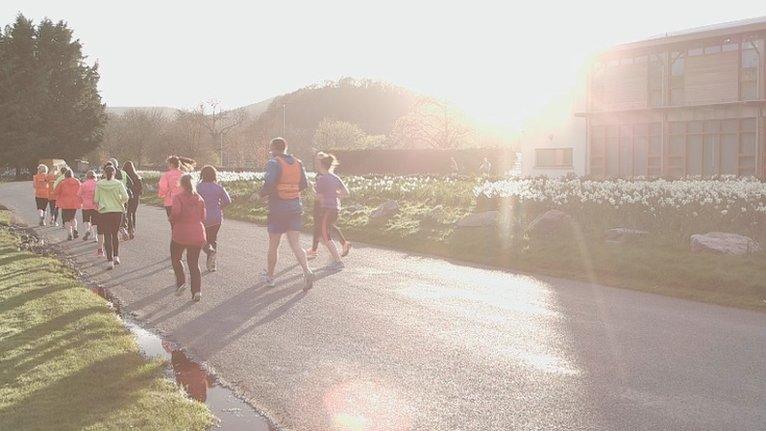
- Published21 June 2015
